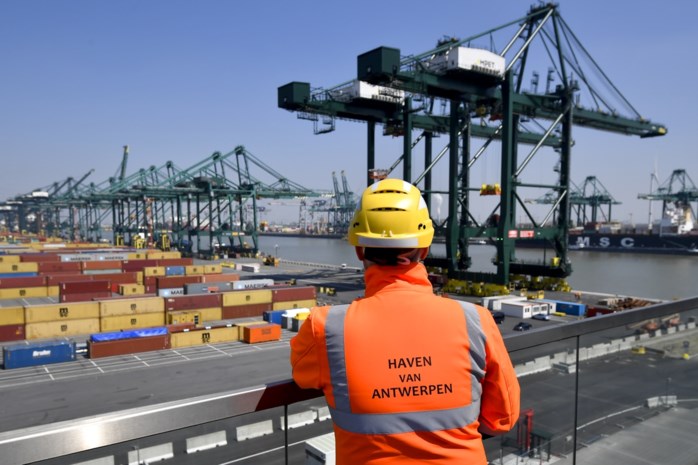The port of Antwerp, the second-largest in Europe after Rotterdam, has long had the reputation of being an important hub for the traffic in illegal drugs.
Now, according to an investigation by an international consortium of journalists, the port is also becoming a vital link in the chain of traffic of illegal pesticides.
At present, the city’s prosecutor’s office is occupied with three separate cases in what is becoming a growing trade.
The trade in all pesticides is estimated at €11 billion a year in Europe, of which 10% is thought to be illegal. The attractions are not only financial: illegal pesticides are easier to ship and more difficult to detect than drugs, and the chances of being caught are lower.
At the same time, the demand is there. Although the products can be dangerous for the environment and for nature, some farmers are prepared to go along if it costs less.
“In China you can buy the product for €15 to €20 per litre,” Rien van Diesen, an expert with police service Europol, told Knack magazine (paywall).
“In Europe you sell can sell it for €80 to €100. If you include your transport and packaging costs, you make a profit of €50 euros per litre,” he said.
And where there is demand for a product and money to be made, the criminals will be sure to follow.
The problem is part of the remit of the federal food safety agency, which has intercepted 20 shipments of illegal pesticides in the last five years, between Antwerp and Brussels Airport.
But the largest shipments, not surprisingly, come through Antwerp.
“Antwerp is the second most important port for the import of pesticides for all of Europe, after Rotterdam,” Hélène Bonte, spokesperson for the agency, told Knack.
According to the customs authority, 80% of the pesticides entering via Antwerp are destined for other European Member States. That makes Antwerp an international hub for legal and illegal pesticides alike.
According to Europol, the trade is divided between organised crime groups and opportunistic amateurs.
“Those are people who are involved in at most one or two transports of pesticides. They see an opportunity somewhere and go for the quick money. But on the other side of the spectrum, you have organised crime groups,” van Diesen said. He estimates that in Europe, seven such groups are engaged in illegal pesticide trafficking, involving about 50-100 criminals.
The investigation was carried out by an international group of journalists led by Investigative Reporting Denmark and including – as well as Knack – media from Poland, Slovenia, Italy, the Netherlands, Germany and the US, and by members of the Organised Crime and Corruption Reporting Project operating in Eastern Europe, Central Asia and Central America.
Alan Hope
The Brussels Times

